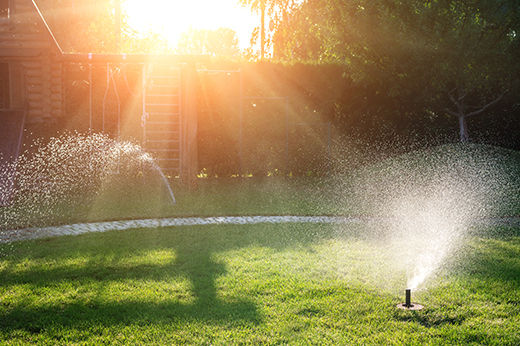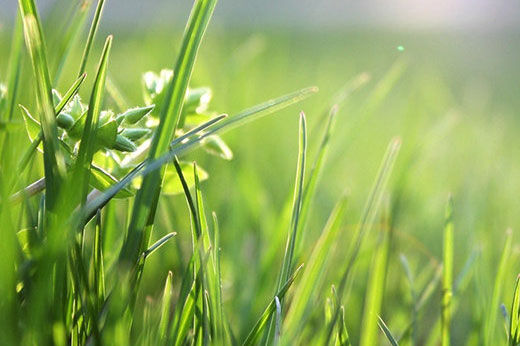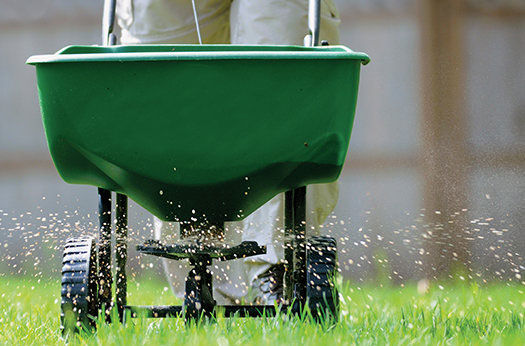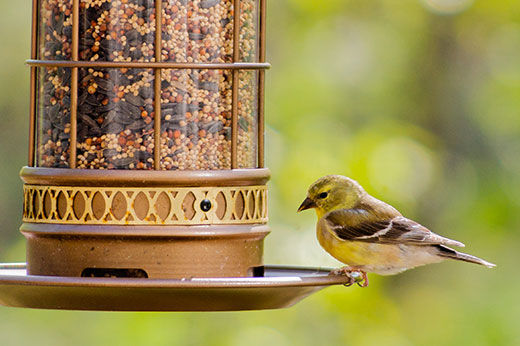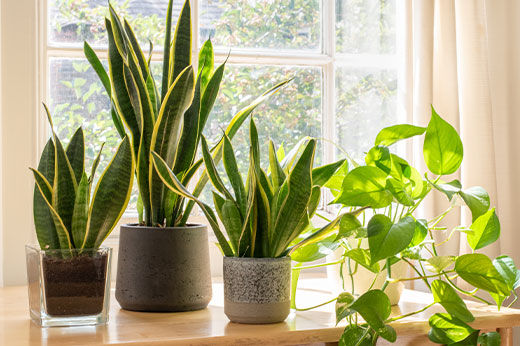5 Tips for an Apartment Balcony Garden in a Small Space

Whether you live in a small urban apartment, a duplex, or a house with a very small yard, you can still have the joy of a garden. If you’re wondering how to create an apartment balcony garden, it’s easy! All you need is a little advanced planning and the right supplies.
In this guide to apartment balcony gardening, we'll offer tips to help you transform your small patio, porch, or balcony into a green space you'll love!
Can You Have Plants in Small Spaces?
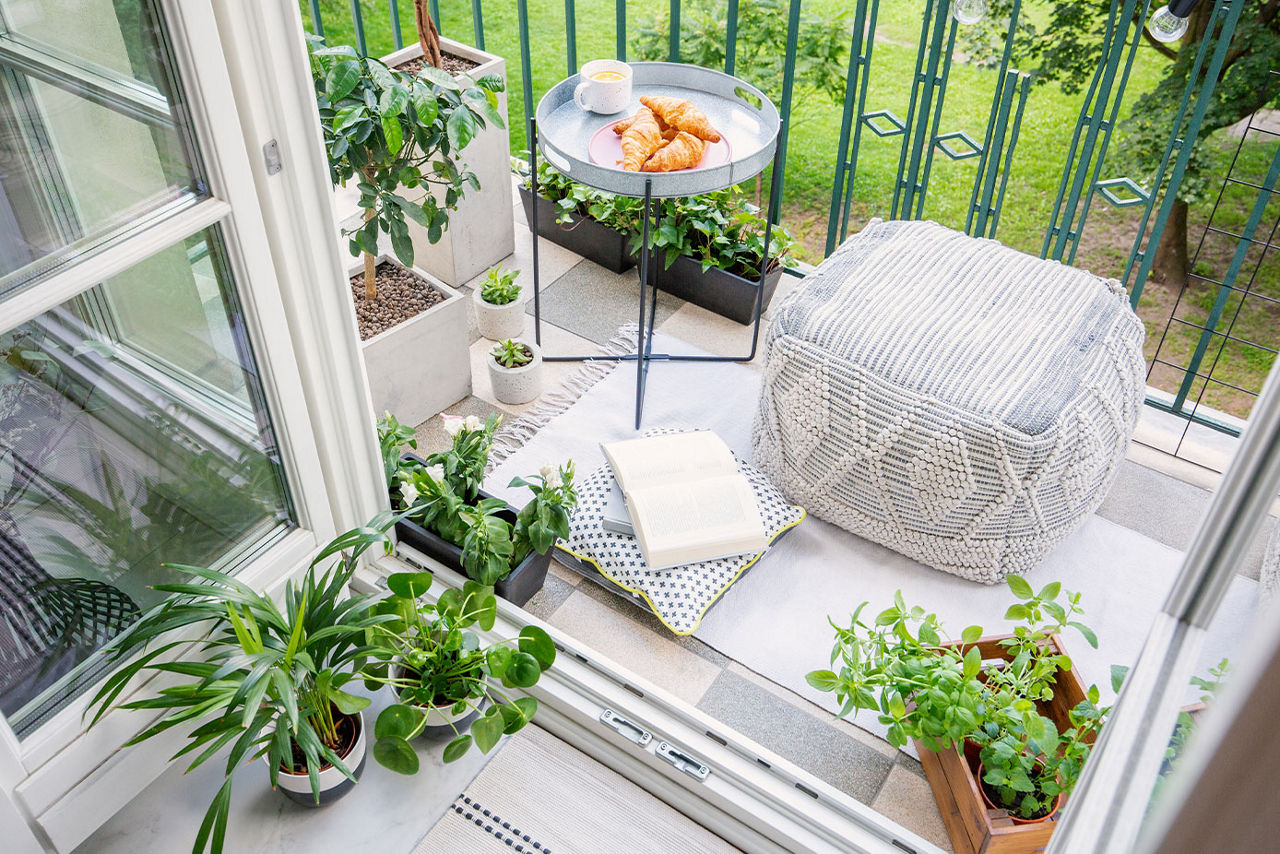
Can you have a garden in a small space? The answer is a resounding YES. Even if you have a tiny porch or balcony, you can use balcony planters and pots to maximize your vertical space. Many apartment building renters turn the challenge into an art form—fitting as many plants as possible into even very small spaces.
Now, you don't need to have a full-on vegetable garden on your balcony (especially if you're new to the idea of gardening in a small space). But even planting a few herbs, lettuces, and flowers can bring you great satisfaction and success. You'll attract native pollinators and beautify your outside space for even more enjoyment.
An apartment balcony garden can help with privacy, too. Plants provide a natural barrier and can even lessen the sound from nearby roads. If you love the idea of having a quiet, green space right outside your door, then a balcony garden is the best way to make it happen.
The Benefits of Having a Small Garden
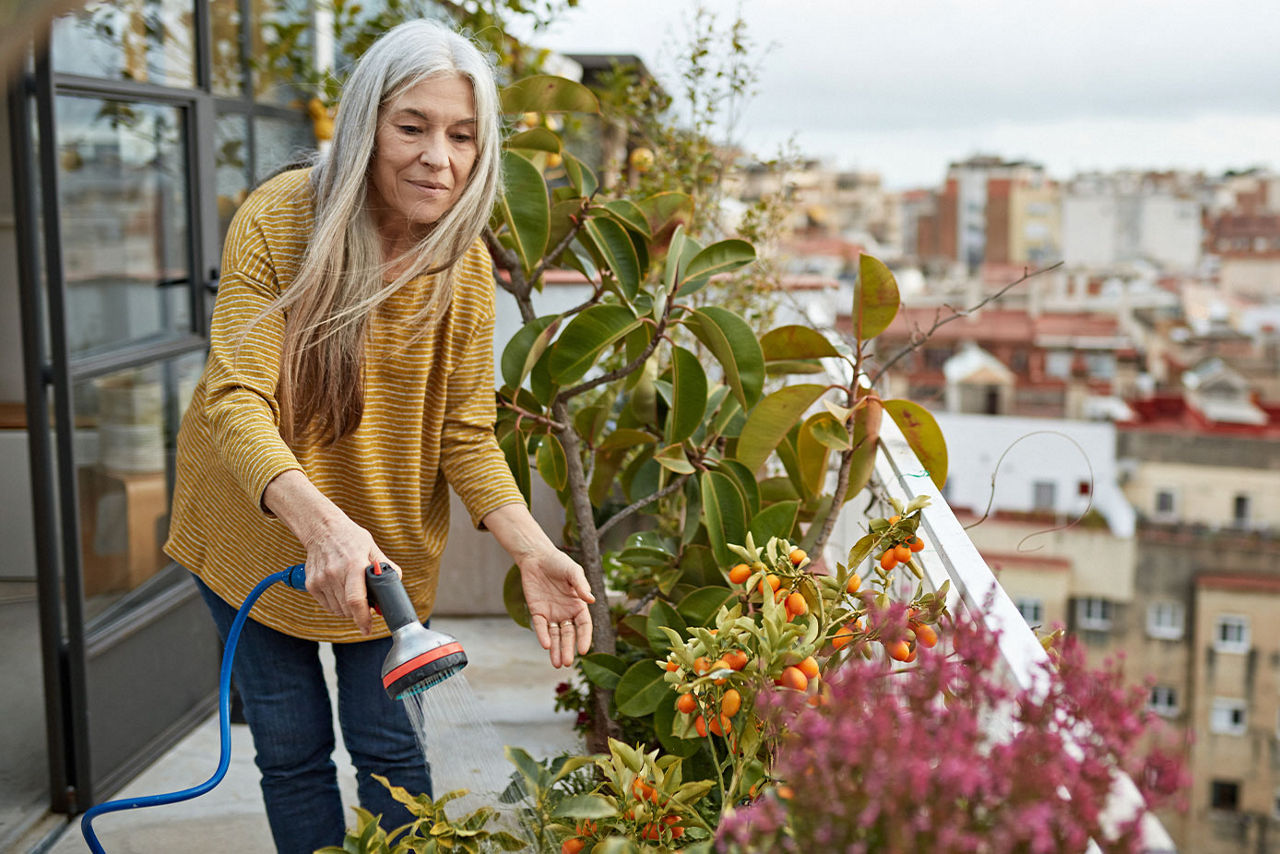
The benefits of any type of garden are significant. Even a small balcony garden feels peaceful and tranquil. Growing plants can be a meditative, mindful experience.
There have been many studies on the mental health and physical benefits of gardening. When you spend time growing and nurturing plants, it brings a sense of satisfaction and purpose. It creates a routine, and there’s the feeling that something depends on you.
You'll also spend more time in the sunshine, increasing your mood-boosting Vitamin D. Even if you're just outside on a balcony, you'll get the benefits of sunshine and fresh air. You'll connect with nature, which brings about a sense of peace and well-being.
Spending time caring for a vegetable or herb garden has the obvious benefit of extra food. There's nothing quite like biting into a crunchy salad or a crispy cucumber sandwich, knowing that you grew the vegetables yourself. Tomatoes seem to taste better straight from the vine. For cooks, access to an herb garden can level up your culinary game and make all your dishes taste fresher and more vibrant.
Finally, gardening supports your physical health because it requires movement. Even small-scale gardening gives you a reason to move, carrying water and soil out to plants, shifting the placements of pots and balcony planters, and tending to the needs of your seedlings.
There are also plenty of benefits of "growing small," especially for new growers. When you have a balcony garden, it's lower maintenance than a raised bed in the yard. Often, there are fewer weeds, especially in pots. Balcony gardens are often out of the reach of seed spreaders like squirrels and chipmunks (and there’s less temptation for pests to munch on your bounty).
If you face a heat wave or a cold snap, moving balcony gardens indoors or covering them with protective cloths is easy. You're gardening on a smaller scale, so you can really see results and feel connected to your plants and their health.
If you're ready to explore balcony garden ideas, follow these five tips for small-space growing success.
1. Start with Low-Maintenance Plants
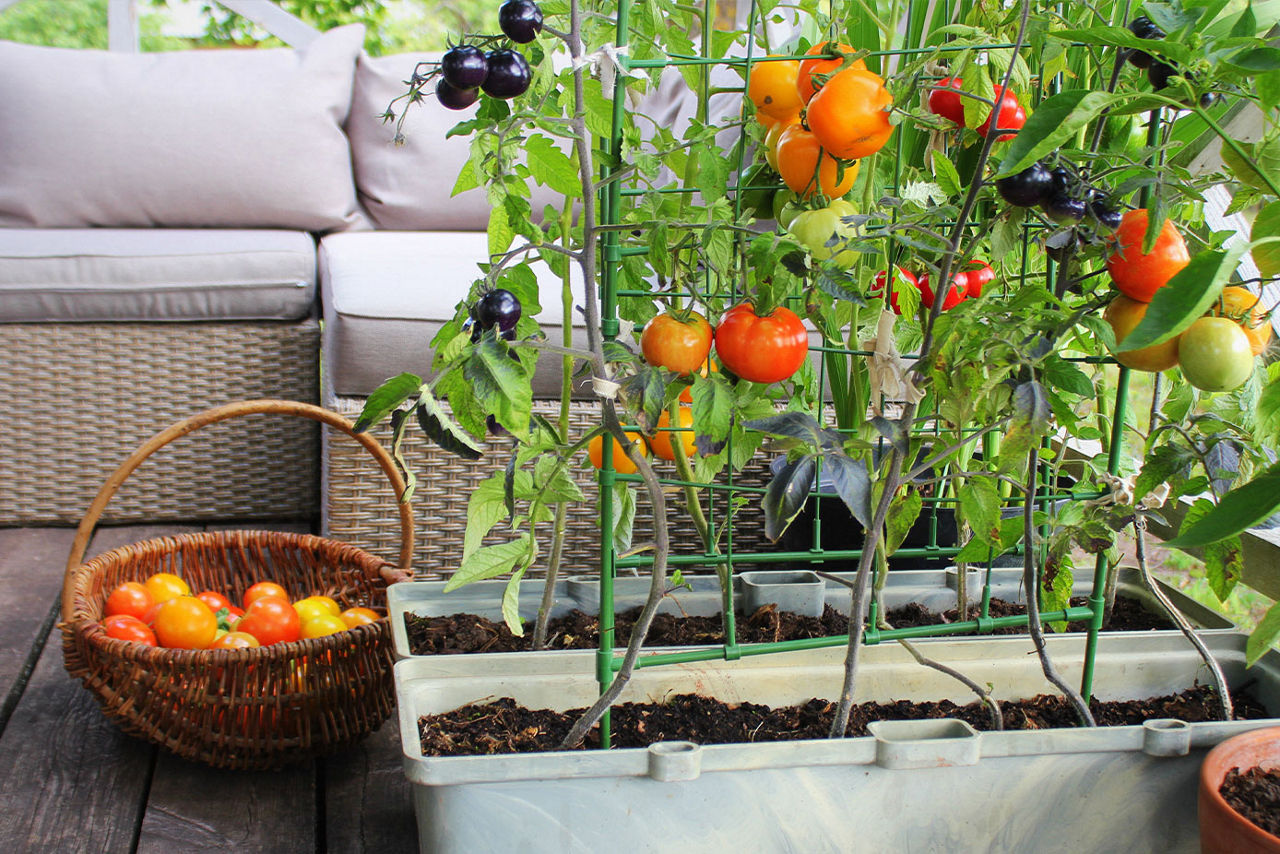
If this is your first garden, avoid the temptation to overdo it. When you start buying plants, it’s tempting to get one of each vegetable you see. But start with a few sure-fire growers to make the most of limited space. Some great balcony plants include:
Tomatoes
Marigolds
Geraniums
Green herbs like parsley, basil, dill, thyme, and cilantro
Lettuce mixes
Zinnias
Mini cucumbers
Hot and ornamental peppers
Chrysanthemums
Impatiens or sunpatiens
Coleus
Rosemary and lavender
Nasturtiums
Succulents
Strawberries
Petunias
Although growing from seed is tempting, newer balcony gardeners will often find more success if they start with small plants and seedlings. Look for plants that have already been started in small containers or pots. These usually have more robust root systems that give them an advantage when they adjust to the conditions on your porch or balcony.
Consider the amount of sun you get on your balcony or porch. If you get full sun, it's a good idea to look for plants that can take the heat. For northern-facing porches, you'll have more luck with shade-loving flowers like impatiens and lettuces. Let the amount of sunlight guide you when choosing plants for your window boxes and balcony railings.
2. Choosing the Right Pots and Balcony Planters
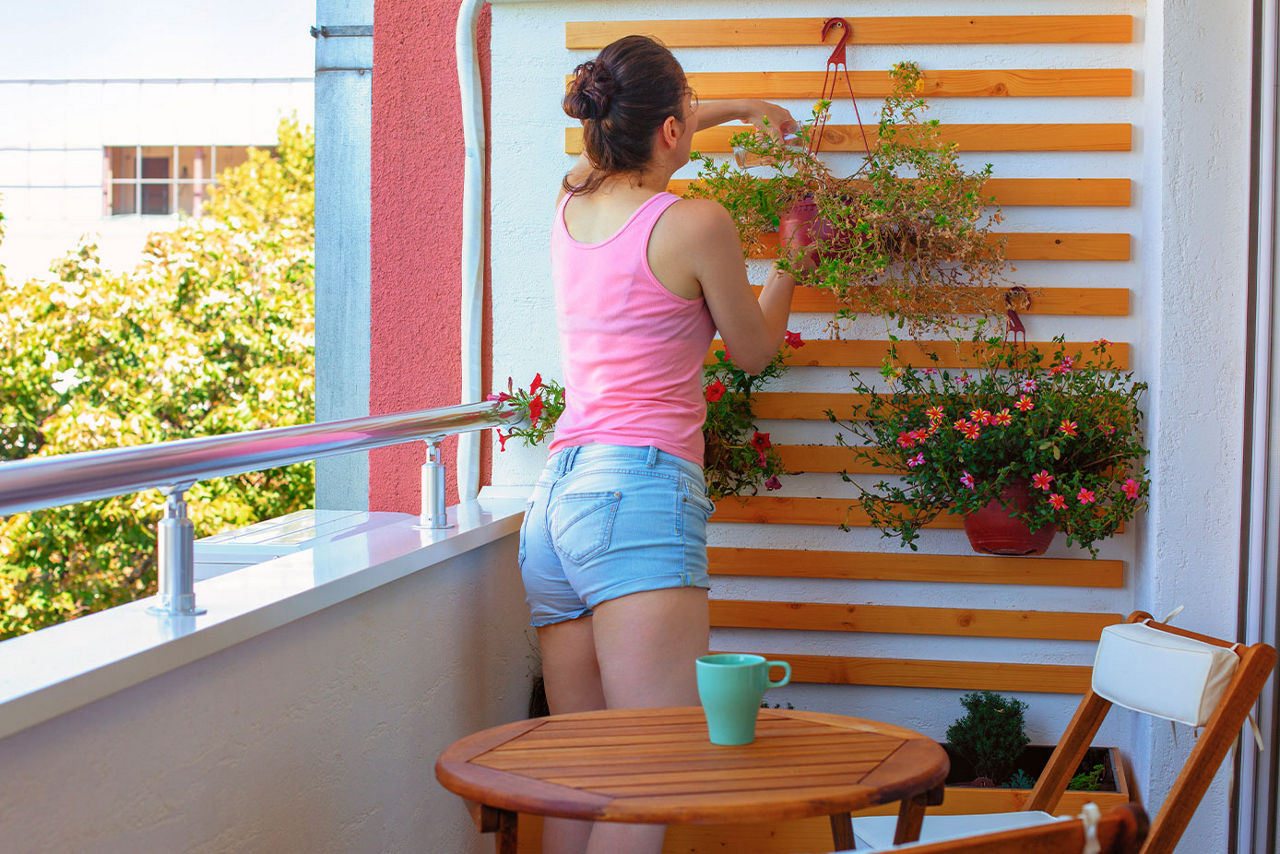
If you’re growing on the balcony, you need to select the right-sized pots and planters for your spouts. Look for pots that have good drainage. Usually, this means that they will feature drainage holes in the bottom, with a tray to catch overflow. Alternatively, you can layer in small rocks or pebbles before adding dirt and seedlings to the pot or planter. This will keep them from getting “wet feet” that lead to root rot. Self-watering pots are convenient for plants that need consistently moist soil.
Choosing pots and planters for your porch is a lot of fun. Since you're gardening in a small space, look for long, skinny planters, hanging planters, and short, round pots. You can always mix and match large containers with smaller ones, but a small space will look more coordinated and cohesive if you stick to similar aesthetics.
You may also want to include a small table for a few raised planters. Staggering height creates a layered look and can help plants get more light. You can switch the plants between locations as needed. If you stack planters atop railings or banisters, be sure they’re secure.
3. Growing Vegetables and Herbs on the Porch
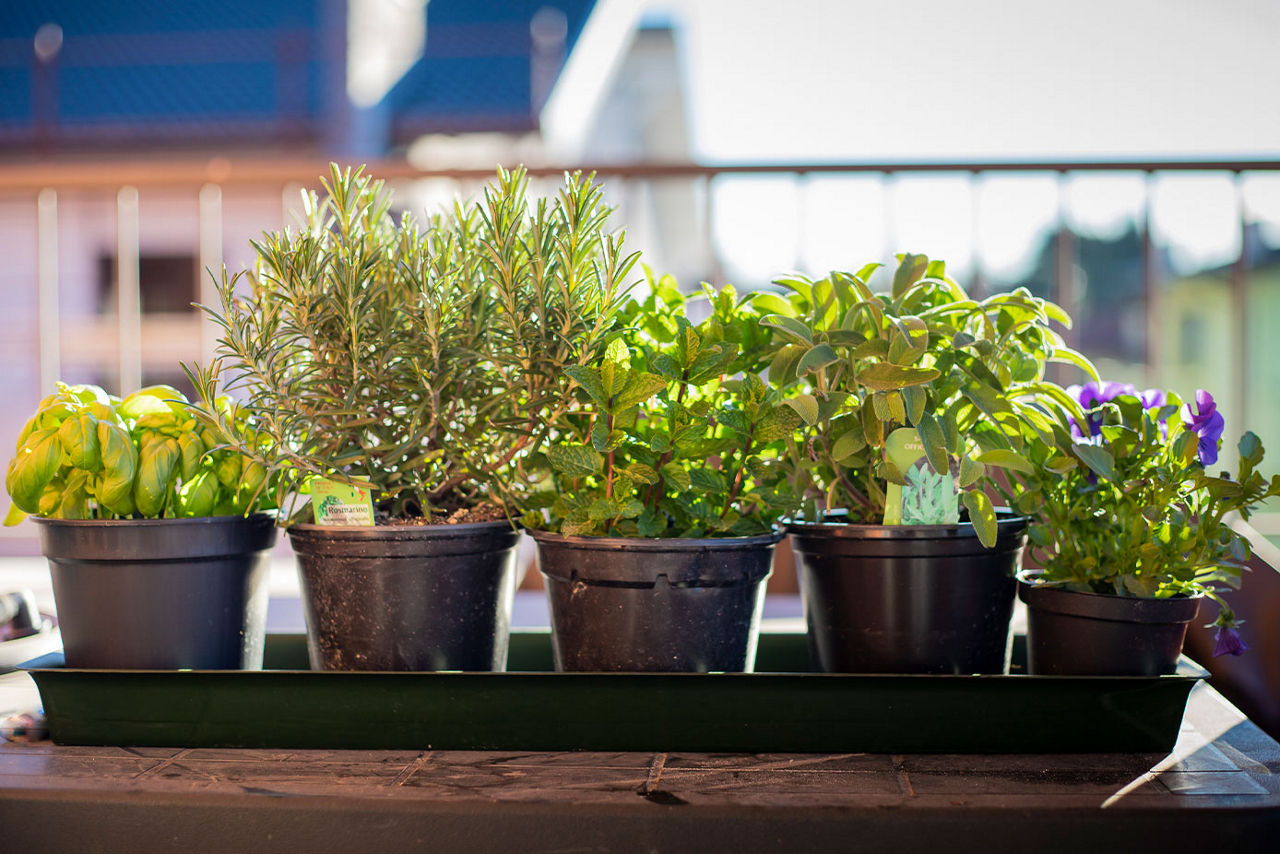
The process of growing vegetables and herbs doesn't differ much from growing non-edible plants. No matter what, the basic principles of regular water, good soil, and light apply. Growing a few edible plants, like tomatoes, lettuce, cucumbers, peppers, and herbs, will make your garden feel extra rewarding when it’s time to harvest.
Choose easy-to-grow herbs and vegetables that thrive in small containers. Most herbs don't require much room or time to maintain. Thyme, basil, cilantro, and parsley are great options and won't take up much space on a tiny balcony. Vegetables like beans, squash, and root veggies require space and depth that you might not have on your porch or patio, so they may not be the best plants for a balcony space. Instead, try tomatoes, peppers, spinach, kale, or tomatillos, which all thrive in small spaces with direct sunlight.
4. Consider Companion Planting
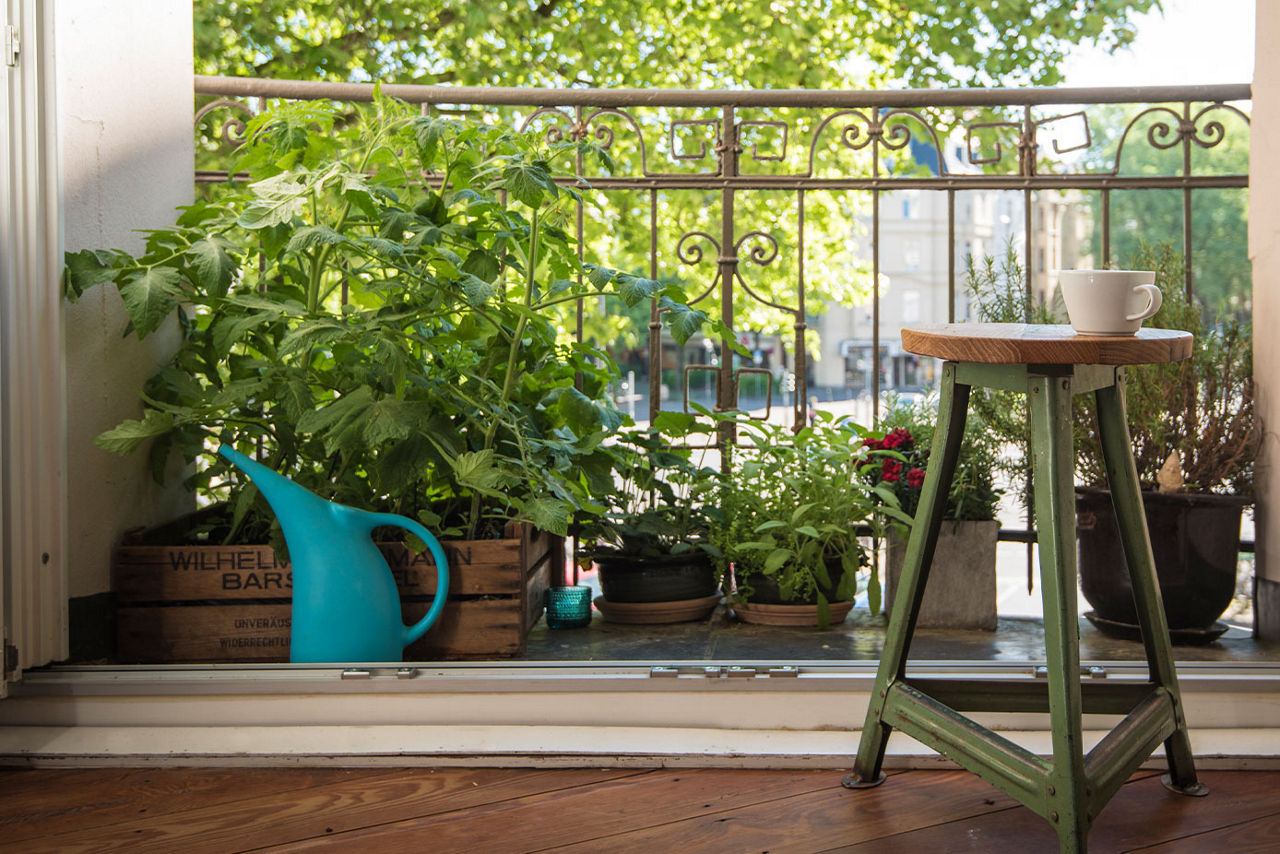
Companion planting is the idea that some plants work together to repel common enemies or serve a common purpose. For example, taller plants might offer shade or a climbing pole to shorter vines. Similarly, some flowers and herbs deter pests that can feed on your vegetables.
A few examples of companion plants include:
Cilantro and dill attract beneficial insects like ladybugs that protect leafy greens from predators like aphids.
Pollinators like bees love parsley, which can then benefit all surrounding plants.
Basil repels moths and hornworms that can snack on your tomatoes (while also attracting bees and other pollinators to your plants).
Mint drives away ants, aphids, and other veggie-loving plants.
Caterpillars like nasturtium and will snack on them instead of kale, broccoli, or cabbage (nasturtium flowers are also edible and look great in salads).
Marigolds deter beetles that like to munch on basil, cucumbers, kale, and tomatoes.
If you prefer organic gardening, companion planting can help you keep the bugs away. There are also more natural bug repellents that you can use to supplement. You can plant companions together in a large pot or stagger the right plants together.
5. Use Vertical Spaces and Trellises
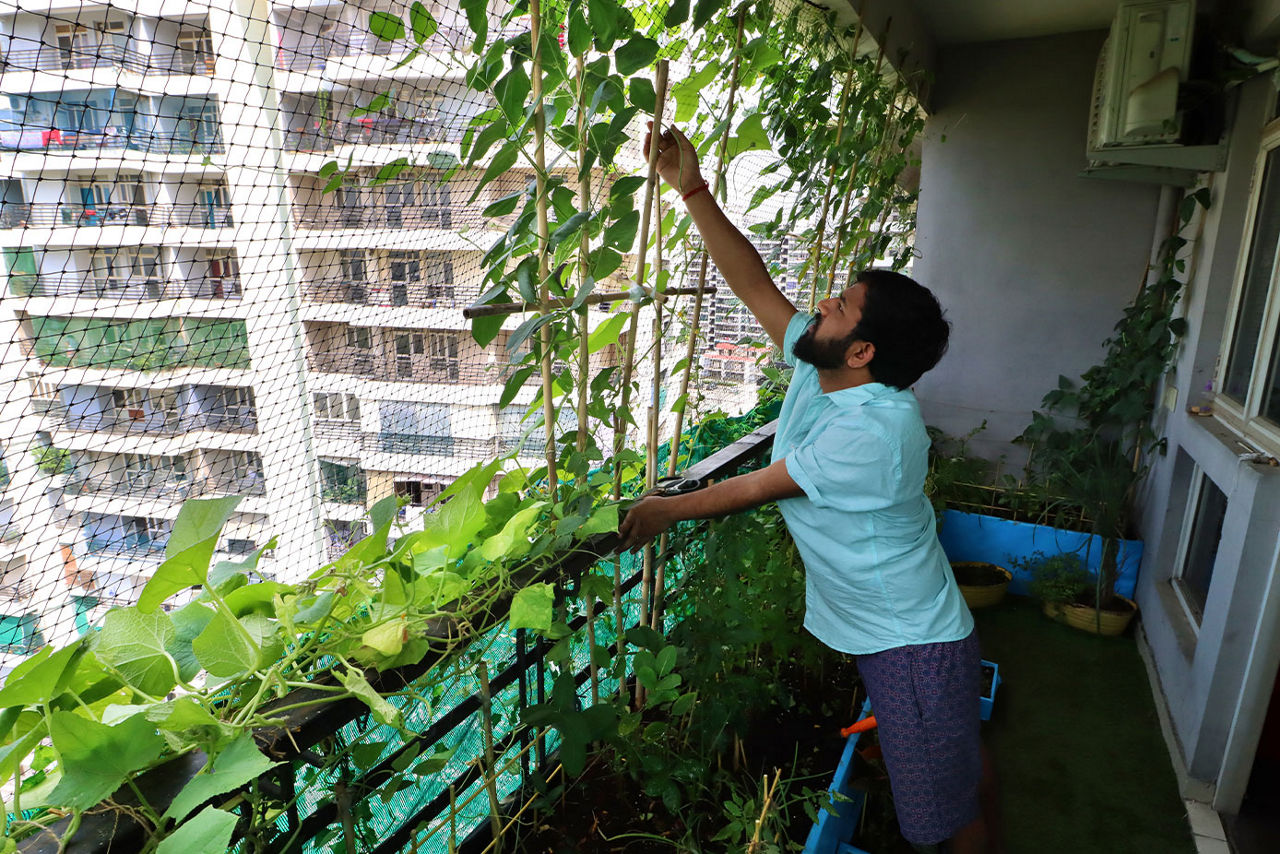
Want to make the most of your small space garden? Build upwards! Vertical gardening can help you increase the number of plants on a sunny balcony. Add trellises and plant climbing plants on your balcony. Peas, tomatoes, beans, certain spinach varieties, and tomatillos love to climb when given the opportunity. Plants of different heights can protect sensitive plants from too much sunlight.
There are also many climbing flowers. Morning Glory, clematis, sweet pea, trumpet vine, honeysuckle, and star jasmine are all beautiful vertically inclined growers. You can plant many of these in a container and winter them indoors.
You can create vertical climbing spots with rope or with a trellis. If you can hang planters, you can also look for some beautiful hanging basket plants, including trailing plants like fuchsia, ivy, and lobelia. Combining hanging and climbing plants can create a lot of privacy on your balcony and help you use all the available space.
Container Gardening Starts at Do It Best
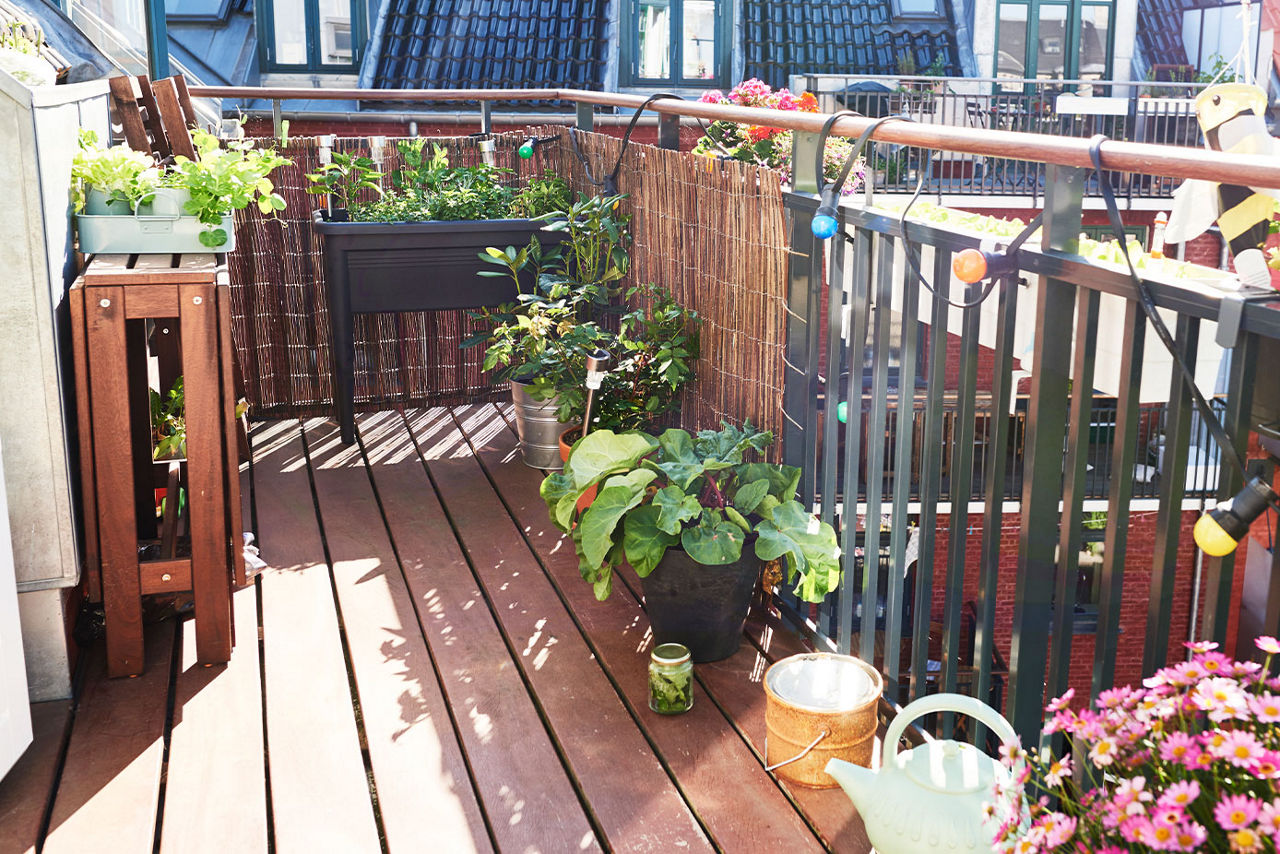
Even if you only have a small apartment balcony, you can have a beautiful apartment balcony garden without too much work. Using small space planters and pots will help you maximize your square footage and create an enjoyable, relaxing spot you'll love. Take notes on your outdoor balcony to plan for next year and make the most of the growing season.
Look for plants that are especially suited to container growing. Vegetables and herbs are good options, especially for plants like cherry tomatoes, peppers, lettuces, and leafy green herbs. You can use companion planting to protect your plants and deter pests from your growing garden.
At Do It Best, we have all the supplies you need for a garden of any shape or size. If you’re ready to turn your balcony into a beautiful green space, visit us today! We’ll help you with the right tools and supplies for a thriving porch or balcony garden!
